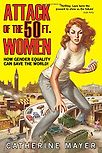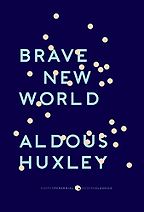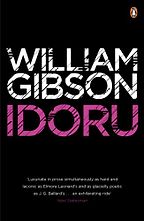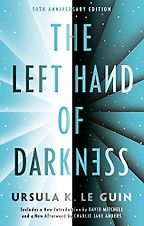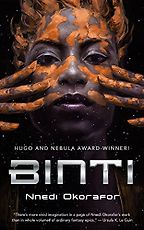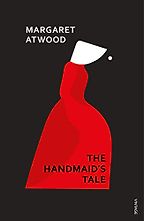In the final chapter of The Attack of the 50ft Women: How Gender Equality Can Save the World, you write about ‘Equalia’—an alternative future world you created, or, more accurately, it is a thought experiment.
It is no coincidence that I chose a title for my own book that relates to a science fiction movie and that I’ve chosen science fiction books to talk about in this interview. I have always found science fiction a very useful way of thinking about possibilities. There is a temptation not to take science fiction as seriously as other genres, to claim that it isn’t somehow as ‘literary’ as other genres, often people can be quite snobbish about it. Whereas, in fact, not only are there really great books, judged by any literary criteria, that come under the heading of science fiction, but, also, some of the most interesting thinking that has been done, has been done in this genre.
I remembered this when I was considering what sort of book I wanted to write, that looked not only at issues for contemporary feminism, but tried to put it in a context that explained why it was that that we had not made more progress and where it was that we hoped to be going. The kinds of thinking that sci-fi writers use, are actually very important when applied to this vital and granular subject area. So, I set out to write something that would be rooted in fact, that would provide people with all the hard information they needed in not only understanding for themselves where we were, but also in advocating for gender equality among people who were not yet convinced. I wanted all of that but I also wanted the vision that could clearly say why we should do this. It is not only for the small incremental benefits that you might get through one policy, or indeed the big benefits, but it is to change the world in ways we can’t yet imagine.
“There is a temptation not to take science fiction as seriously as other genres, to claim that it isn’t somehow as ‘literary’”
Science fiction helps us imagine other worlds where some of things that shape our current world have been taken away—where some absolute fundamentals have changed. Once you begin thinking like this it not only helps you imagine what a gender equal future might look like but it also helps enhance your understanding of the obstacles we face in the present.
One of your choices is The Handmaid’s Tale by Margaret Atwood. She has said that she prefers the term ‘speculative fiction’ to science fiction because the events in her books could actually happen—they are not impossible.
I think, unfortunately, we’ve seen that quite clearly. In The Female Eunuch Germaine Greer quotes Juliet Mitchell’s 1966 essay, ‘Women: The Longest Revolution’: “Circumstantial accounts of the future are idealistic and, at worst, static.” She is saying that you cannot imagine the future without idealising it. Many imaginings of futures are dystopian but she is right that they tend to be static. One of the difficulties in envisaging the future is that you can only do it from the basis of your own knowledge and perspective, and from the point of view of the time in which you find yourself in. But it doesn’t mean that it isn’t an important and useful exercise. And one that tends to produce some startlingly accurate projections of the future. One of the things about the books I’ve chosen, in particular the work of William Gibson, is that in looking at the present you can see that he very accurately extrapolates some of the most important things that would take place in the future. We know this because the book I’ve chosen, Idoru, was written in 1997 and many of the things he describes have now happened. Not only were they not true then, they weren’t even in existence. Margaret Atwood does this in The Handmaid’s Tale in that elements of the country Gilead are reconstituted around the world in different ways. It shows that there is a huge value in attempting to picture the future if you understand what the limits are on that too.
Which book would you like to start discussing first?
Brave New World is the oldest book and the first in this list I read, when I was at school. I revisited it again recently.
I’ve always loved science fiction, or speculative fiction, or whatever we want to call it. I love stories that take an idea of what the world could be and help us understand our own world better.
I remember reading Brave New World and being transported by it. It was recognisable enough in its depictions of the world to make you understand what it was playing on. Yet also to realise how long ago it had been written.
“He describes a physical world that is seductive—yet carries multiple risks with it”
It shows the ways in which technology, our need for certain creature comforts and consumer culture can be used to manipulate us. That our need for pleasure could be used to subjugate through conformity.
Get the weekly Five Books newsletter
We have some similar fears today—drugs to remove pain (emotional and physical/legal and illegal)—and the ongoing parental dilemmas surrounding screen time, social media, even fake news. All have similarities with the drug Soma that Huxley created in this book.
His descriptions of what these imagined creature comforts might look like, and the fact that he is writing this in 1930s, is fascinating. For instance, he talks about perfume coming out of taps—it’s that level of detail that is so striking. He describes a physical world that is seductive—yet carries multiple risks with it.
Yes, and he seems to be asking us, the readers, what would we sacrifice in order to be comfortable?
That’s where conformity is so key and that there is a trade off. It’s not just the physical comfort, but that ‘knowing your place’ can be an extraordinarily comfortable thing. And he is writing this in a time when people are expected to know their place. Although the society of the 1930s was more structured than ours, there were all sorts of challenging movements going on. Huxley doesn’t grapple with women’s issues directly in this book except when he imagines how one produces a family. And that is revolutionary—getting rid of the idea of family. Re-stratifying society in a way that not only do people know their place but they are bred to be content with it.
Five Books interviews are expensive to produce. If you're enjoying this interview, please support us by donating a small amount.
Huxley could see sinister political movements around him using various ways to convince societies that some groups of people were inferior. To have that notion of propagandising as a state function and harnessing technology to enable this, for example ‘sleep-teaching’—it feels very prescient.
I’m thinking about fake news again.
There is an obvious link here with the next book on my list and is the reason I chose Idoru by William Gibson. His powers of prediction are astonishing and in Idoru he predicts ‘fake news’.
It came out in 1997 and in it there are these huge sinister corporations, one of them is called Slitscan. They are actively producing something that is a blend of fake news and reality television—an utterly submersive form of culture that shapes the way everyone thinks and is all-powerful. These corporations are blended with a mafia type element and the nation-states are complicit. Media corporations hold the power in this world. Celebrity culture is a dubious gift, as the celebrities themselves become pawns and products—owned by their creators. At the centre of all this is a love story between a famous rock star and a synthetic, digital woman. This anticipates by many, many years the Spike Jonze movie Her. That’s a movie with Scarlett Johansson, in which a man falls in love with a computer operating system, and I mention Johansson in my book quite often, for a number of reasons. Idoru is a much more complex story—but this isn’t just a world of fake news and vast scale corruption, it is also one where society spends more time in the digital world than the real world. That wasn’t the case in 1997—but it is now.
Gibson isn’t binary about whether technology is a strictly a good or a bad thing. Rather that technology is a transformative force, so you lose some things but gain others.
“Technology is changing us. I fear that the main driver, in Silicon Valley, isn’t paying enough attention to the type of world it is creating”
This is a good example of how writers of science fiction are not just storytellers but also visionaries.
In Idoru there is the possibility for people, who in reality live in miserable circumstances, via the digital world to re-embody themselves in ways that they couldn’t in reality.
One of the characters has a genetic disability but, though trapped in a painful existence in the ‘real’ world, is able to live an extraordinarily active life in the digital world.
Technology is changing us. I fear that the main driver, in Silicon Valley, isn’t paying enough attention to the type of world it is creating. These technology creators are rather blinkered and have far too narrow a frame of reference to build technologies for everyone. One of the many problems is that they don’t employ enough women. Which is why I have a chapter on Silicon Valley in my book.
Unlike my other choices, The Left Hand of Darkness by Ursula Le Guin doesn’t deal with technology but Le Guin uses fiction to perform a thought experiment. Hers is to say what the world would look like if gender was not an issue. She imagines a world where a state of gender fluidity means that people could transfer from male to female and back again.
“Her society isn’t immune to human failings—whether male or female”
The criticisms she received were also interesting. She was criticised for not going far enough with her thought experiment—for not taking the gender argument further. Which I think is unfair in many ways—this idea that you have to go somewhere with a thought experiment. In her case her fictive journey takes her in a particular direction. I like the book for the debate it engendered. By coincidence, I read it in Iceland which was a remarkable experience. In Left Hand of Darkness the world is called Winter and there is peace and gender equality—which is very similar to Iceland today in all sorts of ways.
What do you think Le Guin found when she eliminated gender?
Well this is connected to why she was criticised. People wanted her, in exploring a gender fluid society, to discover a utopia. And she didn’t, it’s no utopia. Society nearly succumbs to war. These people are not better or more trustworthy for being genderfluid. The perceived ‘bad’ elements usually considered hyper-masculine are not eliminated in the society that Le Guin describes. Her society isn’t immune to human failings—whether male or female.
Binti by Nnedi Okorafor, is a trilogy and the third part is out in January 2018. I discovered these books recently, loved them and began following the author online.
Like Le Guin, these books are set in different worlds and the characters are not all human. But they all, in some way, conform to certain psychologies that are recognisable to us. Her thought experiment is concerned with the nature of humanity and she plays around with ideas and problems that occur in our society. Nnedi Okorafor is a Nigerian-American author and she writes about tensions in our world, particularly how people of different races and cultures interact. She does so in ways which are challenging and illuminating. The main character faces situations where she must adapt and empathise—she must change but not lose her own distinctive identity.
It’s about overcoming hatred and reaching understanding. As well as having a convincing and complex female lead.
Everywhere she is the outsider. And an outsider in societies that are at best uncomprehending, at worst, incomprehensibly awful. How you navigate all that while remaining true to yourself? It’s a fascinating question. This idea of different types of intelligence, different kinds of understanding, different ways of seeing the world—to be able to see things that other people can’t see.
And what do you do with people who can’t see the world your way?
This leads us straight to The Handmaid’s Tale. This is the book which addresses that idea head on. Atwood takes all the hard information about gender inequality that she sees around her and then turns it up a few notches. The reason this book still resonates is that she did such a good job of imagining what it would look like. She describes a kind of social conservatism that is very recognisable in Trump’s America—or that Trump and Pence have brought in with them.
“In Gilead there are no good ways to be a woman, only less bad ways”
She describes a world in which women are not just second class citizens but are, at best, chattels. Where not only is violence against women and girls pervasive (as it is in the real world now) but that it is also state-sanctioned. It is in our world now in some respects but, in the book, it is sanctioned in a horrible and ritualised way. As in our current world women are viewed and used for their reproductive powers. Again, Atwood turns it up a few notches in Gilead.
Progress is not linear—rights and progress can roll back, and in the USA today we are seeing a concerted effort to roll back women’s rights.
“Men stand to benefit from equality just as much as women”
Women exist as a global underclass to varying degrees—some women are doubly or triply disadvantaged by race or disability. There are different classes of women in Gilead too in that there are no good ways to be a woman, only less bad ways. Even so, she has been criticised for not being an ‘intersectional feminist’—a term that hadn’t even been coined at the time she was writing! In my book, I interviewed Kimberlé Williams Crenshaw who invented the term ‘intersectional feminism’ and it’s an incredibly useful tool to understanding the world.
I have noted a quote from your book: “Progress is a spider’s web.”
I was talking about how we need progress to be. Progress is both fragile and complex. We want a world that has the flexibility and tensile strength of a spider’s web which means building a culture that is resilient and able to deal with antithetical ideas. If we do create a gender-equal world how would we protect it from influences that might be contrary to gender equality?
I have a young son and daughter and hope for a more equal society for both of them.
I absolutely think that equality is for everyone. Gender equality isn’t some side issue that only affects women. Yes, we feel the effect of inequality more keenly than men do but men stand to benefit from equality just as much as women. There are many ways in which men are disadvantaged by the current situation.
Get the weekly Five Books newsletter
In all the books I’ve chosen there tend to be more warnings than glimmers of optimism. And some fairly grim warnings. But I am an optimist and I think that the route-map to reach a more equal future and society is laid out and it is where we are heading. It may not be a complete utopia but I think it is a place where most people, if asked, would prefer to live.
Five Books aims to keep its book recommendations and interviews up to date. If you are the interviewee and would like to update your choice of books (or even just what you say about them) please email us at [email protected]

